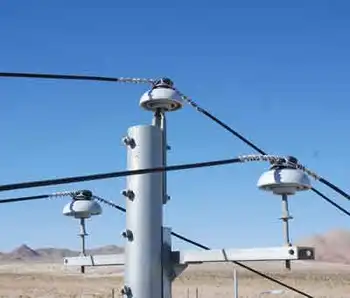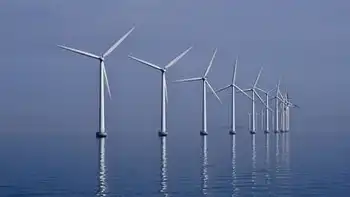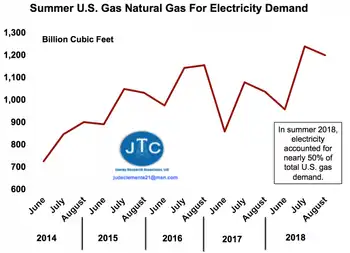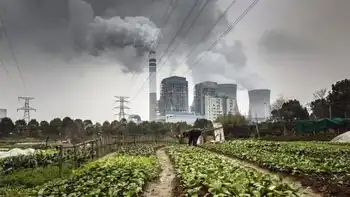Carbon regulation could hit a million U.S. firms
By Reuters
Substation Relay Protection Training
Our customized live online or in‑person group training can be delivered to your staff at your location.

- Live Online
- 12 hours Instructor-led
- Group Training Available
In the report, the pro-business organization projected such regulation would affect more than 1 million U.S. businesses and create such a regulatory backlog that it could stall economic development.
But a former Environmental Protection Agency attorney who now works for the Natural Resources Defense Council advocacy group said such talk is an effort to fan hysteria and avoid regulation.
The next president will probably have to deal with this issue in the first six months of the next administration, said William Kovacs, the chamber's expert on environment and regulatory affairs.
The chamber said proposed regulations would affect businesses that emit over 250 tonnes of carbon dioxide annually. On average, that means any business that spends more than $70,000 on oil or natural gas each year on stationary equipment, rather than in vehicles, the report said.
Citing U.S. Census and Energy Information Administration data, the report said at least 1 million mid-sized to large commercial buildings would have to comply with carbon dioxide regulations under this scenario. So would nearly 200,000 manufacturing operations and about 20,000 large farms, according to the report.
Such regulation could be one result of a landmark 2007 Supreme Court ruling that greenhouse gases like carbon dioxide can be regulated as a pollutant under the Clean Air Act.
The United States is alone among major developed countries in rejecting the carbon-capping Kyoto Protocol aimed at stemming global warming.
The Bush administration has opposed economy-wide moves to regulate greenhouse gas emissions. Both major presidential candidates, Republican Sen. John McCain and Democratic Sen. Barack Obama, have said they would act to stem climate change.
The regulation envisioned by the chamber has so far not been put in effect, and the Environmental Protection Agency - which administers the Clean Air Act - is analyzing data and accepting public comments on this matter through late November.
John Walke, a former EPA attorney now at the Natural Resources Defense Council, dismissed the chamber's report as "hysteria" and faulted the chamber for failing to have a serious discussion on tackling climate change.
"This is a purely political campaign to prevent EPA and the country from even having a reasoned conversation about the very serious problem of global warming," Walke said.
Walke believes the Bush administration will not regulate greenhouse gas emissions under the Clean Air Act in any manner, and that the chamber is aware of this, "so this hysterical campaign is simply a political message to the next administration and the next Congress."
He predicted there will be no rule to regulate U.S. carbon dioxide before 2010 in any event.
EPA currently issues about 15,000 permits a year under the Clean Air Act, Kovacs said. If carbon dioxide emissions were regulated under the act, that number could balloon to 1.2 million a year, he said.
"It's a money problem," Kovacs said. "Each facility has to negotiate with EPA as to the technology that will be put in place." Eventually, he said, "there's no longer any economic development because no one can get a permit."
The EPA acknowledged in July that greenhouse gas emissions pose a threat to human health - an important conclusion, because any substance must be found to be this kind of threat in order to be considered a pollutant under the Clean Air Act.
However, the EPA's statement did not constitute the legal finding of endangerment that would trigger regulation. Instead, EPA chief Stephen Johnson called for 120 days of public comment, which will end in late November.
After that, a rule will need to be written, followed by another comment period of as much as 120 days, which makes any action during the Bush administration unlikely.











